Which is Better Visa or Mastercard? Credit and debit cards have become indispensable in today’s fast-paced and interconnected society, making financial transactions more convenient and secure. Visa and Mastercard are two of the most widely recognized and acknowledged card networks worldwide. Both companies facilitate electronic payments, but prospective cardholders frequently question which one is superior for their particular requirements. Understanding the differences and similarities between Visa and Mastercard is crucial for making an informed decision.

In this article, we will compare Visa and Mastercard based on a number of important characteristics, including global acceptance, network size, features and benefits, fees, security measures, and customer service. At the conclusion of this investigation, you should have a better comprehension of which card network may be more appropriate for you, given your purchasing patterns, travel preferences, and overall financial objectives. However, it is essential to keep in mind that both Visa and Mastercard have established track records and are widely accepted, so either option is likely to provide a dependable and convenient payment option.
Recommended: Most Beautiful Cities in Europe
Visa Card
Visa cards are a form of payment card issued by financial institutions, banks, and credit unions that operate on the Visa network. Visa Inc. is a worldwide provider of electronic payment solutions, including credit cards, debit cards, and prepaid cards, to individuals and businesses.
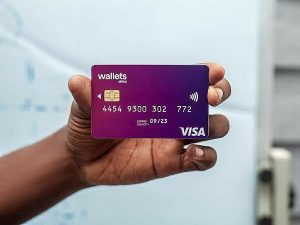
Visa cards are extensively recognized for various online and offline transactions at millions of merchants worldwide. They come in various varieties, such as credit cards, debit cards, and prepaid cards:
1. Visa Credit Cards: These cards enable the cardholder to borrow up to a certain credit limit from the issuing bank or financial institution. This credit line allows cardholders to make purchases or withdraw cash, and they are required to repay the borrowed amount plus any applicable interest and fees.
2. Visa Debit Cards: Visa debit cards are linked directly to the cardholder’s bank account, unlike credit cards. When a transaction is completed, the funds are automatically deducted from the linked account. Debit cards do not entail borrowing and are limited to the account’s available balance.
Also see: Highest Paying Programming Jobs
3. Visa Prepaid Cards: Similar to debit cards, but not linked to a bank account. Instead, users transfer funds onto the card in advance, and only up to the loaded amount can be spent. Prepaid cards are beneficial for budgeting and can be used for purchases just like conventional Visa cards.
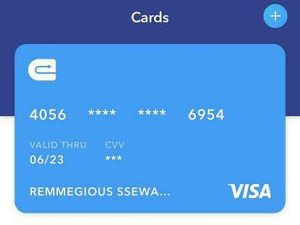
Visa cards offer fraud protection measures and are extensively acknowledged worldwide, making their use generally secure and convenient. To avoid issues with unauthorized transactions, it is essential to manage your card responsibly, pay your expenses on time, and keep your card information secure.
Recommended: Most Dangerous People In the World
Benefits of Visa Cards
Visa cards, like other credit cards, offer a number of benefits that make them a popular form of consumer payment. Here are several of the most significant benefits of using Visa cards:

1. Widely accepted: Visa is one of the largest and most extensively recognized payment networks internationally. It is accepted at millions of locations around the globe, including online retailers, retail stores, restaurants, hotels, and more, making it easy for users to make purchases almost anywhere.
2. Security: Visa cards are equipped with rigorous security features, such as encryption, monitoring for fraud, and zero-liability protection. This means that if your card is lost or stolen and unauthorized charges are made, you are typically not responsible for those fees.
3. Convenience: Visa cards eradicate the need to transport large amounts of currency, making them a secure and more convenient option for everyday transactions. It is particularly useful for emergency expenses and international travel.
Recommended: Countries with highest unemployment rate in the world
4. Rewards and benefits: Numerous Visa cards provide cardholders with rewards programs, rebate incentives, and travel advantages. Depending on the card’s rewards program, users can earn points or cash back on their purchases, which can be redeemed for merchandise, travel, or statement credits.
5. Online shopping: Online purchases are typically made with Visa cards. They are a preferred option for e-commerce transactions due to their secure payment processing and extensive acceptance.
6. Credit-building opportunities: The responsible use of a Visa credit card can assist individuals in establishing or enhancing their credit history. Payments made on time and a low credit utilization ratio can have a positive effect on credit scores.
Recommended: Most Famous People In The World 2023 (With Pictures)
7. Emergency funds: Having a Visa card can serve as a reserve in times of emergency when cash or other payment methods are unavailable.

8. Travel benefits: Some Visa cards include travel-related advantages, such as travel insurance, rental vehicle insurance, lounge access at airports, and other travel-related discounts.
9. Contactless payments: Numerous Visa cards now offer contactless payment options, such as Visa payWave and Visa payWave, enabling fast and convenient transactions by swiping the card on a compatible payment terminal.
10. Budget management: Visa cards provide users with straightforward and detailed monthly statements, allowing them to monitor expenses and effectively manage their budget.
Recommended: How To Study Smart Not Hard (With Pictures)
Disadvantage
Although Visa cards are widely accepted, there may be some locations that do not accept credit card payments, particularly in remote areas or small businesses.
Mastercard
Mastercard is a global technology and payment processing company that provides financial services. Alongside Visa, American Express, and Discover, it is one of the leading actors in the payments industry. Mastercard offers an extensive selection of financial services and solutions, with a primary emphasis on facilitating electronic fund transfers and credit/debit card transactions.
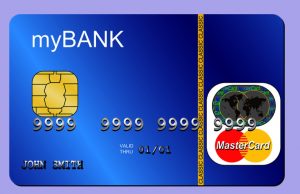
Among the most important aspects of Mastercard are:
1. Payment Network: Mastercard administers an international payment network that connects institutions, merchants, and cardholders. It enables convenient and secure electronic transactions with credit, debit, and prepaid cards.
2. Credit and Debit Cards: Mastercard issues credit and debit cards either directly or through financial institutions with which it partners. These cards bear the Mastercard logo and are accepted at millions of retailers worldwide.
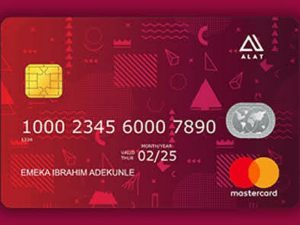
3. Global Presence: Mastercard operates in over 200 countries and territories, making it one of the most extensively acknowledged payment networks on a global scale.
Recommended: Oldest Means Of Transportation (With Pictures)
4. Security and Technology: Mastercard utilizes a variety of security measures, including EMV chip technology and tokenization, to secure cardholder data and reduce fraud.
5. Digital Payments: Mastercard has actively participated in the development and promotion of digital payment solutions, such as contactless payments, mobile wallets, and online payment platforms.
6. Rewards Programs: Numerous Mastercard products include rewards programs that provide benefits such as rebates, airline miles, or points for purchases made with their cards.
7. Financial Inclusion: Mastercard has participated in initiatives to promote financial inclusion and has worked on programs to provide financial services to underserved populations.
Recommended: Fastest/Easiest Countries to Get Second Citizenship 2023
Advantages of Mastercard
1. Widely accepted: Mastercard is one of the most widely acknowledged payment methods worldwide, with millions of businesses and merchants accepting it for transactions. This widespread acceptance ensures that you can use your Mastercard in numerous locations around the world.

2. Security features: Mastercard incorporates a variety of security measures to safeguard cardholders from fraud and unauthorized transactions. This includes EMV chip technology, tokenization, and sophisticated fraud detection systems.
3. Convenience: Carrying a Mastercard is more convenient than carrying currency, particularly for larger transactions. It eliminates the need to transport large amounts of cash and facilitates ATM access to funds.
Recommended: How to Sue a Bank in Nigeria: Your Rights and Options
4. Contactless payments: Mastercard supports contactless payments, which enable fast and secure transactions by simply swiping your card on a terminal that is compatible. This feature is gaining popularity due to its quickness and usability.
5. Rewards and benefits: Numerous Mastercard products provide cardholders with rewards programs, compensation, and other incentives. These rewards may include airline miles, hotel points, discounts, and rebates on purchases, making it attractive to users who wish to receive advantages from their expenditures.
6. Travel perks: Some premium Mastercard credit cards include travel amenities, such as airport lounge access, travel insurance, and concierge services, which enhance the travel experience overall.
7. Global currency conversion: Mastercard facilitates transactions in multiple currencies, making it ideal for international travelers and businesspeople who frequently conduct transactions in foreign currencies.
Recommended: Countries with the worst education system in the world
8. Digital wallet integration: Mastercard can be readily integrated with digital wallets such as Apple Pay, Google Pay, and Samsung Pay, providing a convenient and secure method of making mobile and online payments.
9. Purchase protection: Purchase protection is a feature of many Mastercard products, providing coverage against injury, theft, or loss for eligible purchases made with the card.
10. Contactless transit payments: Mastercard facilitates contactless payments for public transportation in certain cities, allowing users to use their cards for seamless travel on buses, railroads, and other transit systems.
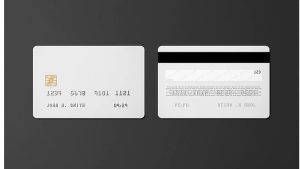
Recommended: Countries with the best education system in the world
In conclusion, there is no clear winner in the debate between Visa and Mastercard regarding which card network is superior, as both have their own assets and advantages. Visa and Mastercard are both extensively recognized around the world, making financial transactions convenient and accessible. The choice of credit card ultimately depends on personal preferences, spending behaviors, and unique requirements.
Visa and Mastercard are in constant competition to offer cardholders innovative features, benefits, and rewards. They frequently partner with numerous banks and financial institutions, so the card’s terms and conditions may vary depending on the card’s issuing bank.

Edeh Samuel Chukwuemeka, ACMC, is a lawyer and a certified mediator/conciliator in Nigeria. He is also a developer with knowledge in various programming languages. Samuel is determined to leverage his skills in technology, SEO, and legal practice to revolutionize the legal profession worldwide by creating web and mobile applications that simplify legal research. Sam is also passionate about educating and providing valuable information to people.